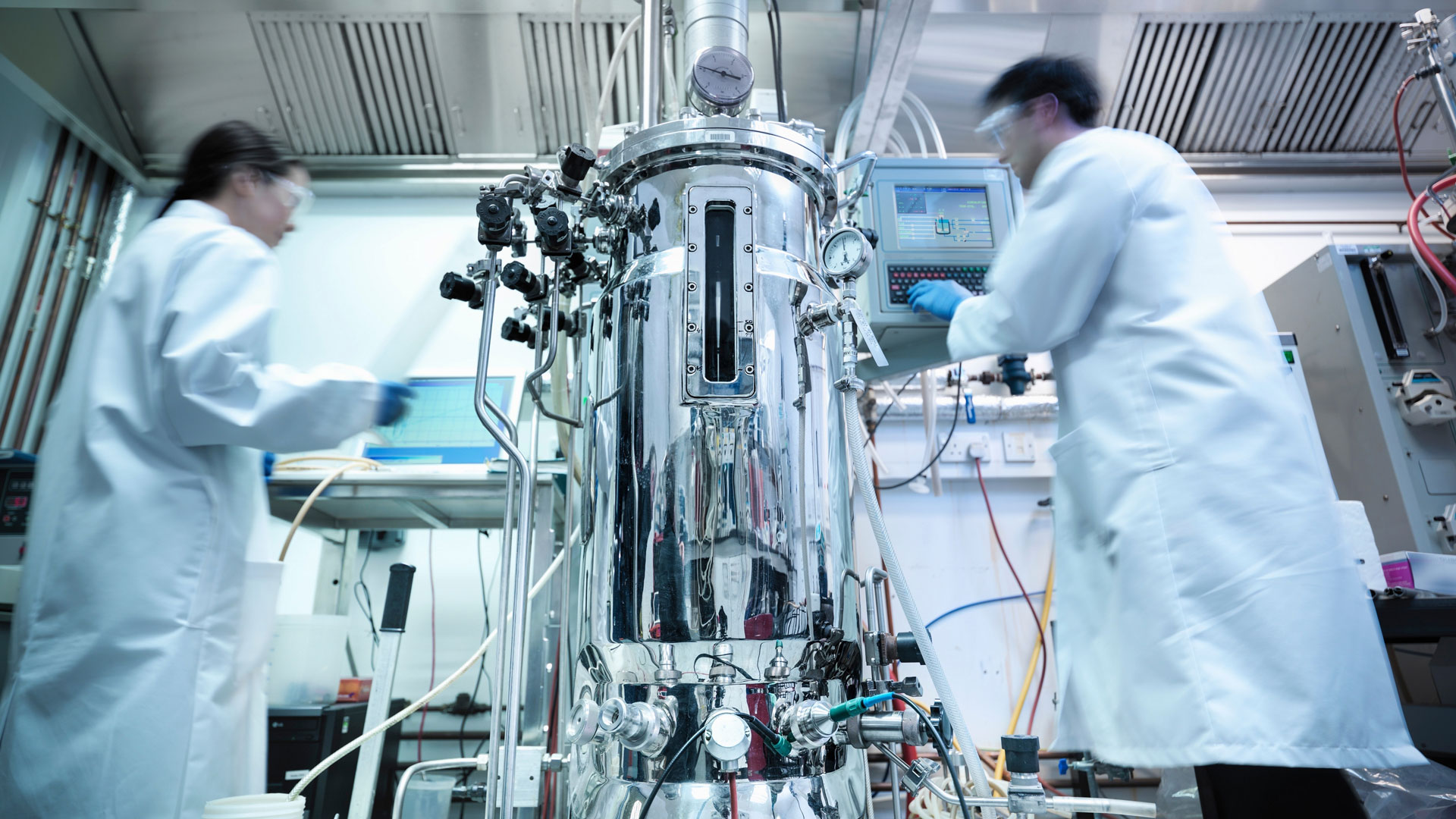Fact
High growth expected
The global precision fermentation market was worth $1.3 billion in 2021 and will grow by 48 per cent annually until 2030.
Source: Polaris Market Research
Fermentation
Microorganisms in large steel tanks can help us produce food, chemicals, medicine, and fuel without the use of fossil resources or animals. The technology is called precision fermentation and is predicted to be one of the most important players in the green transition.

Before CRISPR, genetic modification of a microorganism was a difficult, slow, and boring process, and only possible with a few organisms.
Although it is technologically possible to have microorganisms produce anything in a laboratory, the Achilles heel of precision fermentation is scaling up the process. Upscaling is about increasing the production of a given substance from a few milligrams in the laboratory to a yield of several tons in a factory. This means extra work for the researchers.
“We can make anything in the laboratory, but as soon as we scale up the production up, we encounter difficulties. When the microorganisms go from living in a 1-liter fermentation tank to a larger tank, they often respond to changes of, e.g., temperature, osmotic pressure, and oxygen and salt content, etc., and the production of the given substance may slow down or even stop. Thus, we also work a lot on manipulating the microorganisms, so they can cope with the changes. At worst, we will have to start over and find a new microorganism,” says José L. Martinez, who explains that it is becoming continuously easier to search for nature's own answer to microorganisms that are robust enough to cope with upscaling.
“Thanks to the rapid technological development in areas such as genome sequencing, robots, big data handling, and artificial intelligence, we can now screen thousands of microorganisms in a week, as opposed to around one hundred just ten years ago,” says José L. Martinez, adding:
“The portfolio of potential microorganisms to utilize has grown enormously because we can find them now. Nature has actually already invented all solutions. We just need to find them.”

In order for precision fermentation to replace dairy cows, beef cattle, chickens, oil, gas, or coal, it is crucial to find solutions that enable the microorganisms to produce large amounts of the desired substances. Otherwise, the processes will not be profitable for the companies as the end products end up being far too expensive.
Despite the challenges of upscaling, precision fermentation is predicted to reach new heights in the coming years. According to the Wall Street-based research firm Polaris Market Research, the global precision fermentation market was worth $1.3 billion in 2021 and will grow by 48 per cent annually until 2030. The market analysis predicts that alternatives that can lead to substitutes for meat, fish, and eggs will drive growth on the precision fermentation market.
A growth, which the research firm attributes to the increasing demand for food, that does not burden the environment or the climate but instead is facilitated with a lower energy consumption, lower CO2 emissions, a lower water consumption, and without the use of huge areas of agricultural land. Last, but not least, production will be able to move geographically closer to consumers, thus also avoiding the energy consumption and CO2 emissions associated with transporting products over great distances.
Fact
The global precision fermentation market was worth $1.3 billion in 2021 and will grow by 48 per cent annually until 2030.
Source: Polaris Market Research
These perspectives have led to precision fermentation being touted as one of the most important technologies in the green transition. But an even greater potential lies ahead, says José L. Martinez:
“In the coming years, there will be a change in the way we feed our microorganisms. They have to feed on something inside their steel tanks, and today we feed them sugar, among other things. But we are developing new feed solutions because we find microorganisms that can live off waste and by-products from businesses, greenhouse gases or even plastic. Enzymes have been found that can biodegrade plastic into compounds that we can use as feed for the microorganisms. This is truly mind-blowing. Just imagine that one day we will be able to produce medicine or food using our plastic waste. It's revolutionary. It’s the essence of green transition.”
Fact
Read more about the Fermentation Based Biomanufacturing Initiative
José Luis Martinez Ruiz Associate Professor Department of Biotechnology and Biomedicine Phone: +45 45252630 jlmr@dtu.dk